I started writing this post when I first arrived in India, but it’s so difficult to focus on the road when you want to soak in every magical moment of your trip! More to come soon…
February 16th, 2025. I have just arrived in Mumbai, the first stop on my next two-month odyssey through Asia. I’ve been fascinated by India for decades — its colors, chaos, architecture and spirituality have spoken to me for as long as I can remember. And as I walked around the city today, fresh off a 10-hour red eye flight from Rome, I was reminded of the feeling of destiny that takes over when you listen to your instincts and let them guide you.
My best friends in both high school and university were Sikh. I studied South Asian Travel Literature, Buddhist Architecture and Indian Religion as electives during university. When I was first introduced to Indian cuisine as a child, I fell in love with it (and discovered I had a surprisingly high tolerance for spicy foods). When my parents asked me what I would do after graduation, I told them I didn’t know, but I would move to India and figure it out. This was before Eat Pray Love, by the way.
That didn’t exactly happen; I moved to Italy instead. But India has played a recurring role in my life and has been a sort of gateway to Asia for me. There’s something about the culture that really speaks to me. I love authenticity — places that are unapologetically themselves, cities that are worn and lived in, societies that are deeply human. There’s an intrinsic harmony to life here, despite the cultural cacophony and overall chaos. It’s raw and honest; people are open and unfiltered. It’s so refreshing.
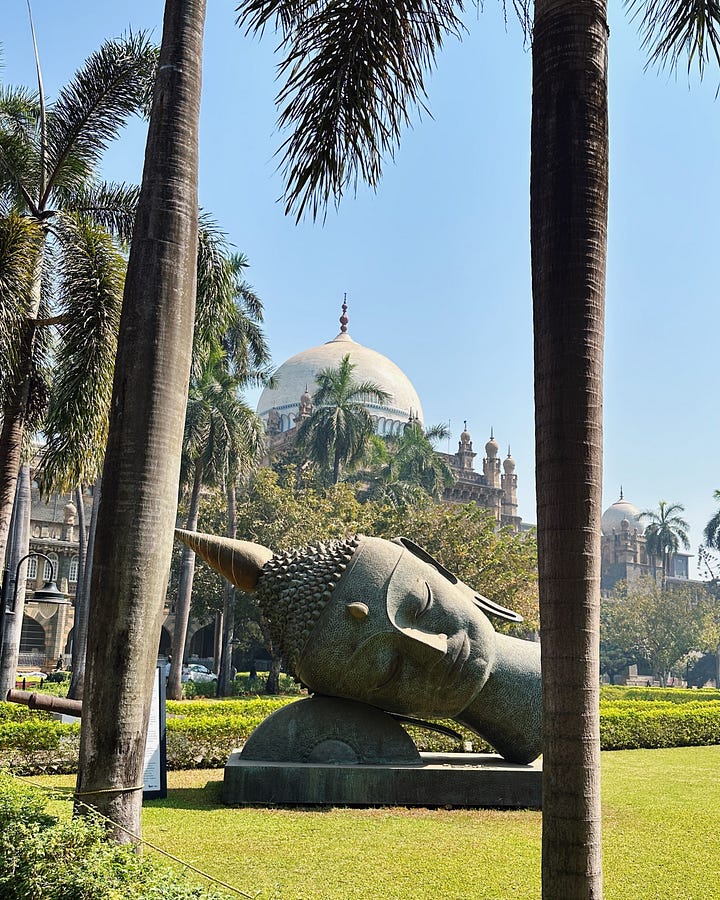
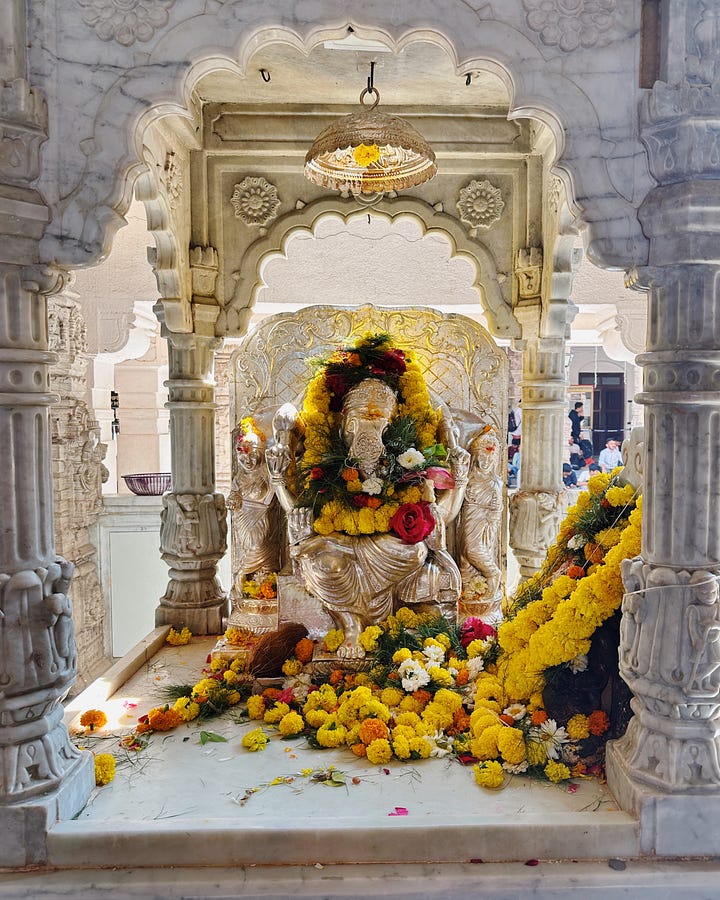
There’s something spiritually magnetic about Asia more broadly as well. This is where Eastern Philosophy all began, and there’s so much wisdom to glean from religions like Buddhism and Hinduism. In theories of non-attachment, in the beauty of impermanence, in leaning towards acceptance rather than pushing through resistance.
I’m not a dogmatic person and I don’t find pleasure in our western, Protestant approach to suffering. I don’t believe we need to earn pleasure or be punished for seeking joy or being imperfect humans. I don’t believe in shame or guilt or self-denial. I believe all humans have intrinsic value, that human nature is fundamentally good, and that we are all connected to each other and our natural world.
Isn’t that a more beautiful way to live? To seek harmony, to honor each other and our world, to live lightly, fully, compassionately?
I also don’t want to idealize “the East” in a way that feels reductive or patronizing because India, like the rest of Asia, faces very significant hardships, from enormous economic inequality and poverty to environmental challenges. No part of the world is spared from violence and life here can be very difficult.
But this continent is home to 4.78 billion people — nearly 60% of the world’s population. Asia is not just relevant to the past; it is deeply intertwined with the future of humanity. I think we could all learn so much by traveling here and exploring how diverse it is across vast regions and geographies that span countless cultures and traditions.
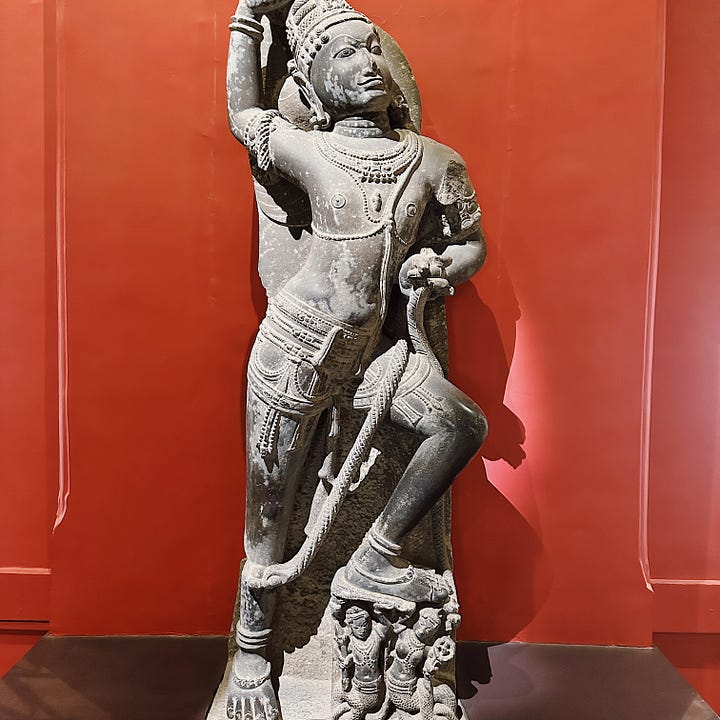
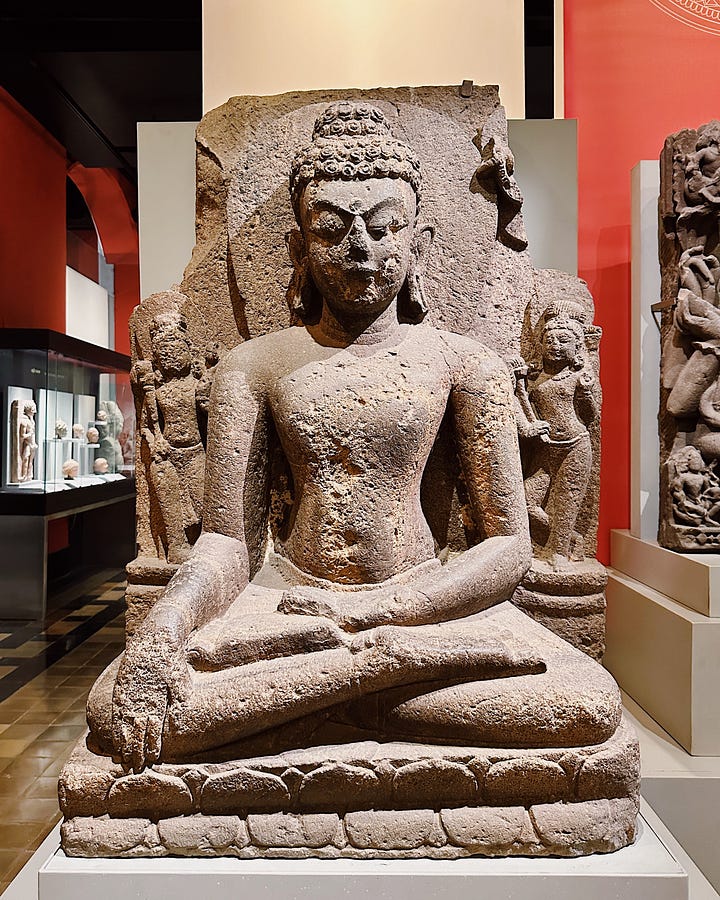
I visited Mumbai’s most important museum today, the Chhatrapati Shivaji Maharaj Vastu Sangrahalaya museum (it’s a mouthful). Formerly known as the Prince of Wales Museum, it’s a beautiful gallery with thousands of artifacts that recount centuries of Indian history. My favorite wing featured dozens of intricately carved sandstone statues. I really love the simplicity of stone carvings — there’s something so grounding and timeless about natural materials.
In the gallery, next to statues of Shiva and Vishnu and Ganesha, there was an explanation of Hinduism which underscored why this country (and continent) resonates so much with me:
Hinduism has no precise historical beginning, but is rather a way of life. There is no single authority or codified text prescribed to its followers. Central to Hindu philosophy is the belief that the universe is created and governed by a formless supreme power: nirguna and nirakara, which is present in all living beings and non-living things.
To connect with this formless supreme power, Hinduism envisaged its manifestations in the form of a number of divine images. Open to diverse thought, Hinduism has co-existed in harmony with various religions and sects in India, embodying the very interconnectedness it teaches: a philosophy that celebrates the authentic self while recognizing our place within a larger cosmic unity.
This feeling of interconnectedness, of coexistence is exactly what calls me to India, and to explore Asia.
We spend so much time inside our brains, hyper-focused on the minutiae of our daily lives, but travel interrupts this mindless rhythm and immerses us into a wider current of life alongside new humans, new ways of thinking and new ways of being. It’s what I search for when I travel: connection, meaning, truth.
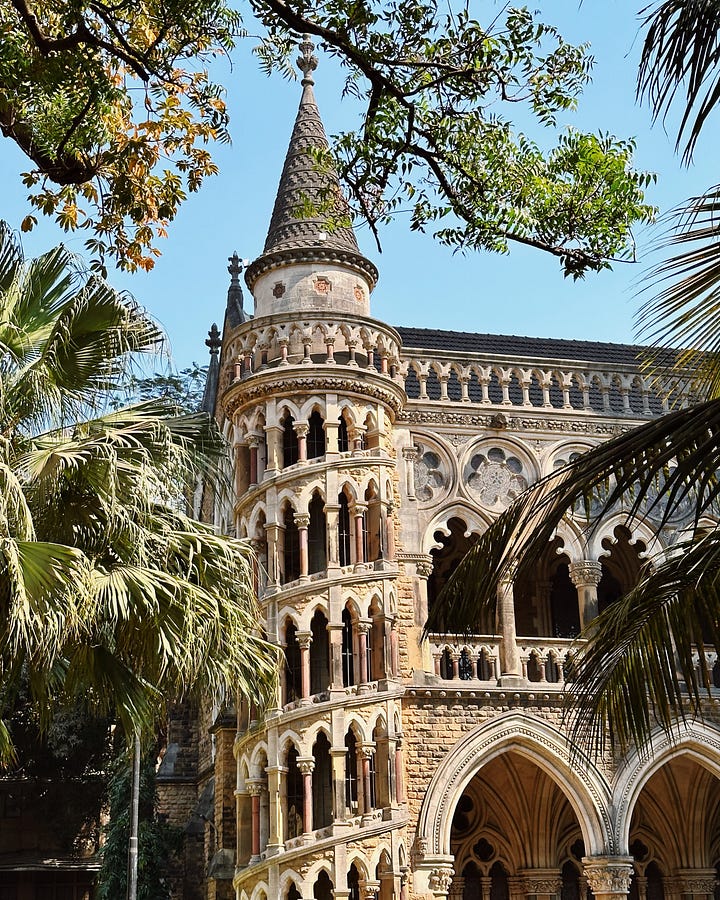
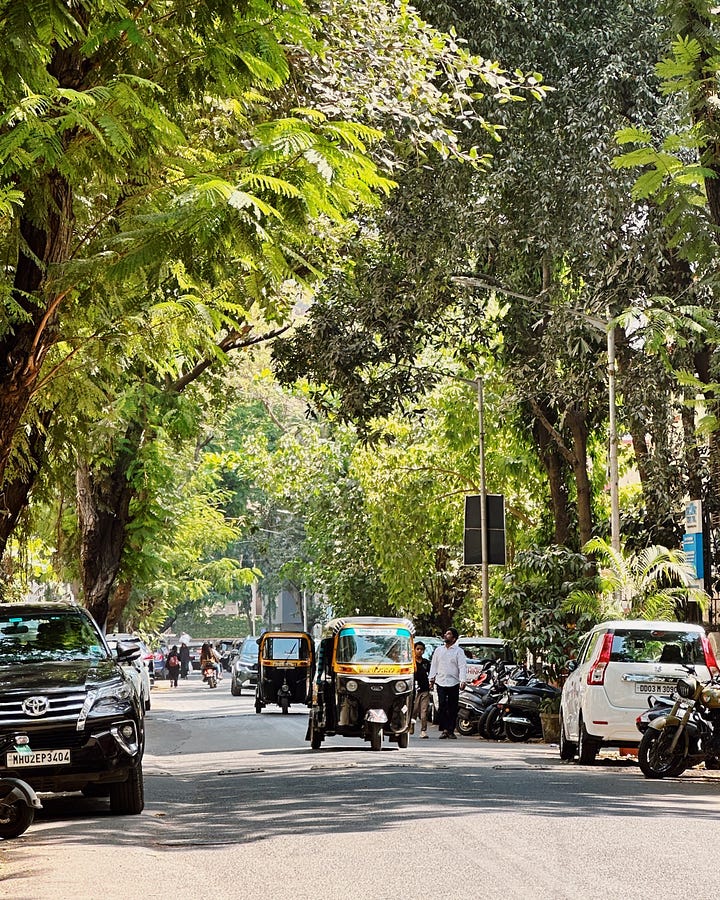
I left the museum and wandered down shady streets until I stumbled upon a huge open field where hundreds of people were playing India’s national sport: cricket. It was a Sunday and the field was packed. Each match was its own universe and there were dozens of competing teams playing at the same time. Every few minutes you’d hear the clack of a bat hitting a ball and cheers, or jeers. It was coordinated chaos, an orchestra without a conductor. Improvised and harmonious at the same time.
Behind the field are elegant remnants of Mumbai’s colonial past: the Rajabai Clock Tower, modeled after London’s Big Ben, and the Gothic spires of Bombay’s High Court, covered in intricate reliefs and arched windows. The juxtaposition of raw life, colonial architecture and ancient history is just perfect.
I stood for a while watching my surroundings and trying to make sense of the game. Then a man stopped and offered to explain the rules of cricket. And within minutes we were talking about the meaning of life, as one does with strangers you meet when you travel. He lived and worked in Germany but he was re-visiting his hometown for a few weeks.
He said, “Whenever I come back to India, I find a lot of answers.”
It felt serendipitous — echoing the conversation I’d been having with myself just a few hours earlier. How we’re all searching for meaning in our lives, how we’re called to explore and how our journey brought us to the same place at the same time.
“Do you know that in India, even the poorest people are happy?” he said. “When you have less, you have less to lose.”
It feels paradoxical to realize that we’re trapped, not liberated, by our attachments. Our wealth and privileges make us so fearful and vulnerable to loss; the dopamine of consumerism seems to drown out our inner instincts. We are so removed from what is truly important in life that we lose sight of what’s really valuable.
“There is a difference between pleasure and happiness,” he continued. “Pleasure is fleeting, tied to things that come and go. But happiness is something deeper. It is freedom from constantly wanting.”
Our conversation echoed one I had with a dear friend years ago over dinner in Rome. As we sipped wine and twirled pasta while discussing the point of it all, she opened a portal in my mind with a single statement: "The point of life isn't happiness." She said it so matter of factly, and it felt so noir and bleak. I stopped chewing and stared at her, taken aback.
I had always thought that happiness was the point. Achieving contentment. Relishing in earthly satisfaction. Happiness is surely elusive, but wasn't that the direction we were all aiming for? The foundation upon which we could finally breathe a sigh of relief after pushing a boulder up an eternal hill — that moment when we finally reached the top and achieved a state of enduring bliss?
"Happiness is a byproduct," she explained. "What truly fulfills us is pursuing meaning through love, creativity and even adversity." She quoted Viktor Frankl's Man's Search for Meaning.
"Happiness can't be pursued, it must ensue."
“I just don’t believe that life has an inherent meaning,” she concluded. “The point of life is to create your own meaning.” She picked up another noodle while I took a sip from my glass and sat there, mulling over this reflection.
I've spent most of my life believing that we should all seek an objective truth. And it's been humbling to realize that, conversely, most of life is subjective — our beliefs, our reactions to what happens to us and even how we see and define ourselves. It's a lesson constantly repeated through travel when you find yourself 10,000 miles from home somewhere completely foreign.
What's normal in one place represents an entirely different way of being elsewhere. Yet beneath these cultural differences, our fundamental human nature remains the same. Letting go of the need for universal certainty... that's liberating.
This is where Buddhism offers wisdom: attachment to anything causes suffering. And although we're always chasing something — truth, happiness, pleasure, contentment — we can never permanently hold onto it. Feelings are fickle and ephemeral; they constantly ebb and flow. We ride a perpetual rollercoaster of highs and lows through each day of our lives. Along with joy comes inevitable suffering. And along with pain comes growth.
Everything exists as two parts of the same coin: you can't have good without bad, or light without darkness. Nothing exists in isolation. We need its opposite to understand it.
I've always been a dreamer who believes in an idealized world, but I've also come to terms with the suffering inherent in our existence. It's unavoidable. I wish we could banish it all, elect better leaders, live more collaboratively, trust others and ourselves more deeply. But life will always be difficult, complex and deeply unfair.

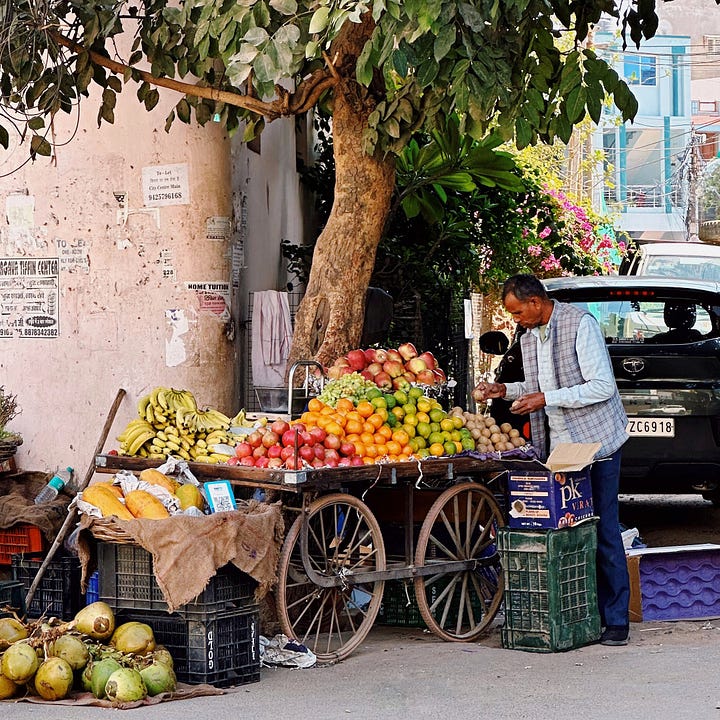
Those of us lucky enough to have been born into abundance, into safety, into opportunity... we have been so cosmically fortunate. We should recognize this fortune, cherish it and use our privilege to help others. I think that's both the least, and the most, we can do.
But I also recognize the inexplicable randomness woven into our lives. We emerged from stardust and will one day return to it — everything we've known will disappear. Will our soul persist? Will we have the consciousness to know it? And once we're gone, does it even matter?
If "the meaning of life" feels heavy, what if we embrace existential irreverence instead?
We could simply savor the brief, precious gift of existence — our chance to love, to learn and to contribute. To make this world a little better for those who come after us.
Maybe that's the point. Be a good human. Do no harm. And enjoy the ride.
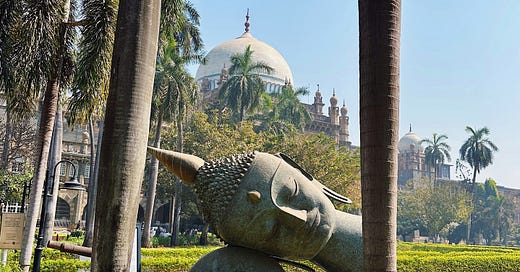




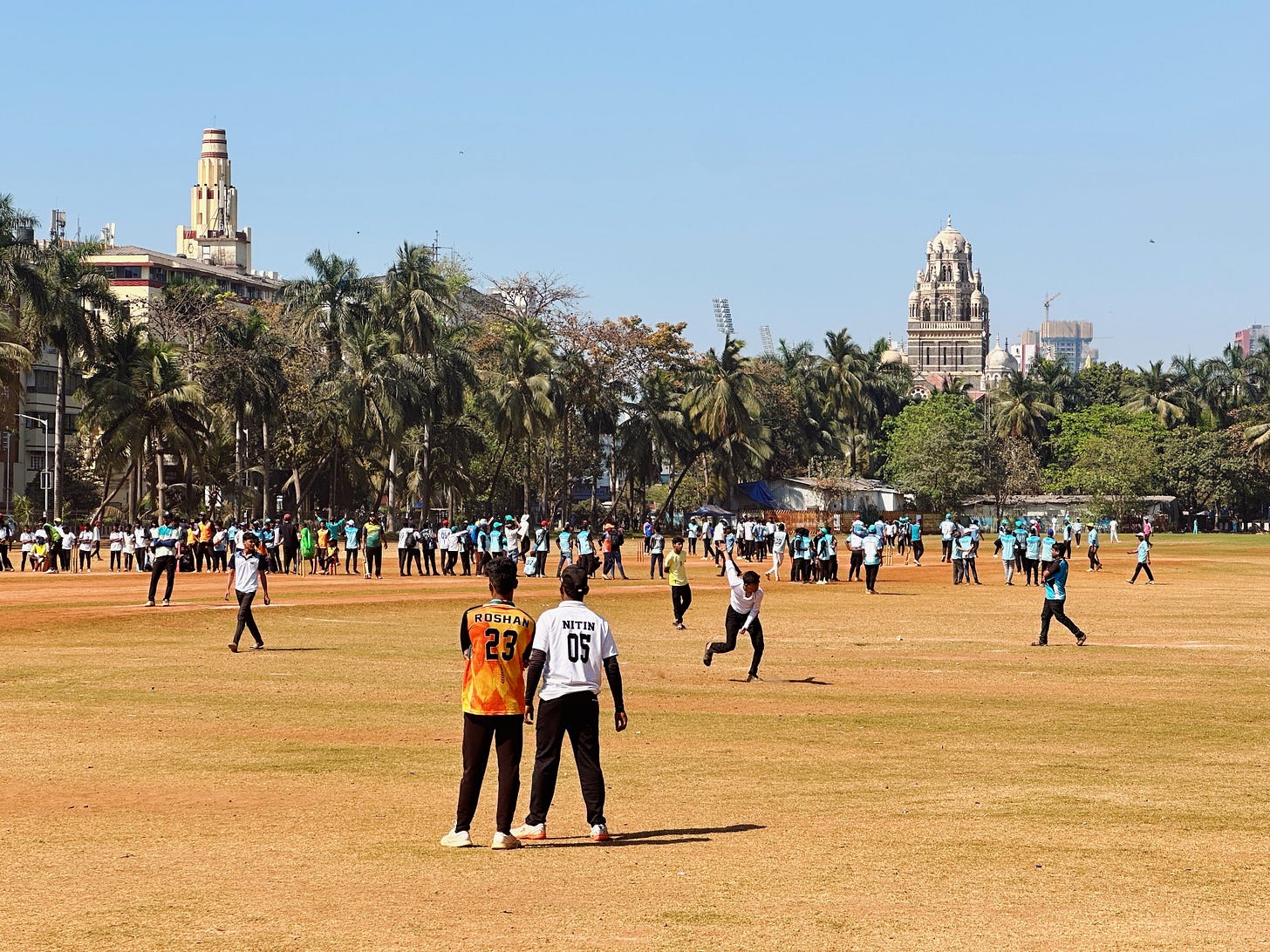


This was such an inspiring read. I came back from India feeling so full and reset, and you captured parts of that experience in ways I’ve been trying (and failing) to put into words. I wrote a short piece about a spot I loved in Jaipur. Definitely not as reflective as yours, but it shifted how I see textiles, craft, and even the meaning stitched into what we wear. Thought you might enjoy it, here’s the link if you're curious: https://open.substack.com/pub/tangentsandotherdetours/p/worth-the-detour-trust-me
This was such a beautiful read and one that I resonate a lot with. I also have a soft spot for India (actually wrote about how its magic transformed my life recently) and I deeply desire to go back. Travel has the ability to connect us to ourselves, each other and the universe and India is such a magical place for this. Thank you for sharing!